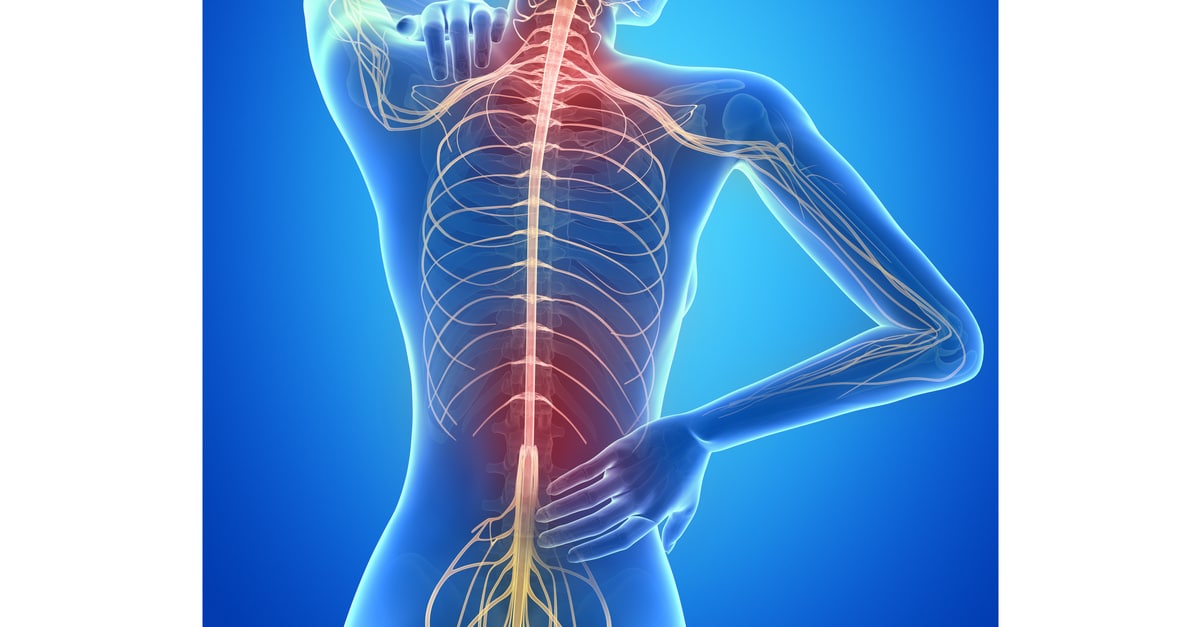By: Mahmud Ibrahim, MD
A spinal cord stimulator (SCS) is a device which puts patients in control of their pain. It’s basically an implantable device that works to block pain signals traveling up the spinal cord from getting to the brain. It works by a similar idea of when someone bangs their knee into something and then feels better when they rub it. It’s providing a constant signal to the spinal cord to interrupt those pain signals from travelling up to the brain. It is typically used to treat pain coming from either the neck or low back. It can also be used to treat nerve pain in the arms and legs due to various conditions, such as Complex Regional Pain Syndrome (CRPS) or neuropathy.
Typically, a SCS trial is done in the office or at a surgery center under x-ray guidance, similar to an epidural steroid injection. It can be done under local anesthetic or with sedation. Patients ordinarily only feel the pinch of the anesthetic and then should only feel pressure. Once the needle is in the epidural space, a small spaghetti-like wire is threaded up into the epidural space. Testing is then performed to ensure we are covering all of the patient’s pain. Once we confirm everything is in the right location, the needles are removed and the leads are taped or sutured to the skin to prevent the leads from moving during the trial. The most uncomfortable part of the procedure is usually just asking the patient to lie on their stomach for 30-45 minutes.
Afterwards, the patient is then seen back in the office anywhere from 3-7 days later to have the trial leads removed. During the trial period, it generally takes 1-2 days to notice relief. It can take up to 6 weeks for everything to heal and to be pain-free.
SCS are commonly used in cases where patients have failed conservative treatments, such as physical therapy, acupuncture, and chiropractic therapy as well as injections. It most commonly is used for patients who continue to have neck or back pain following surgery. However, it is now being used as an alternative to surgery since it is much less invasive and has a faster recovery time. Additionally, SCS is completely reversible, whereas surgery is not.
Long-term complications from SCS are rare. They include lead migration, infection and pain at the implant site. Some SCS systems are not MRI-compatible. Therefore, it is important to know which system is being implanted. Sources of strong electromagnetic interference (defibrillators, electrocautery, MRI, RF ablation, and therapeutic ultrasound) can interact with the SCS system.
Most patients that I have performed a SCS implant on are very happy with the results. Studies have shown that >90% of patients have adequate pain-relief following a SCS implant. In my practice, I have treated patients who were on long-term opioids, including one who almost died from an accidental overdose, who were able to come off their medications following SCS implantation. In fact, I had a patient who experienced so much relief with the lumbar (low back) SCS that they returned to have a cervical one implanted as well.
Many patients are afraid when it comes to something being implanted in their body. However, this is one of the few things in medicine that a patient can actually try before getting the permanent one. Patients should at least speak to their physician about a trial to know if it is an option for them.
While SCS is covered by almost all insurance plans, each company has different indications for what they allow SCS for. Also, there are some insurance companies that require psychological clearance prior to scheduling a SCS trial, which can be off-putting for some patients. However, this clearance does not have to be an in-depth evaluation but rather, can be a single visit with a psychologist or psychiatrist. Primary care physicians can sometimes perform these clearances as well.
For more information on Spinal Cord Stimulators, come to the live event on July 23, 2019 at 6:30 PM. Hear Dr. Ibrahim discuss whether this may be a treatment option for you! Event will be held at Girgis Family Medicine, 171 Main Street, South River, NJ 08882.
Dr. Mahmud Ibrahim, MD is a Physical Medicine & Rehabilition (PM&R) and Sports Medicine Specialist in East Brunswick, NJ. For more information on Dr. Ibrahim, please read his bio. If you would like to schedule an appointment, you can contact him by email at mibrahim@pssmwellness.com or call his office at (732) 955-9139 for assistance.
 Copyright secured by Digiprove © 2019 Linda Girgis, MD, FAAFP
Copyright secured by Digiprove © 2019 Linda Girgis, MD, FAAFP



Thank you so much for a Sharing this great post and i agree that i good information on yor page .I also have some problems with my ear and throat and was showing to an ent doctor nyc and I do trust that you have to reveal your self to a selected professional for your Health issue. And health problem.